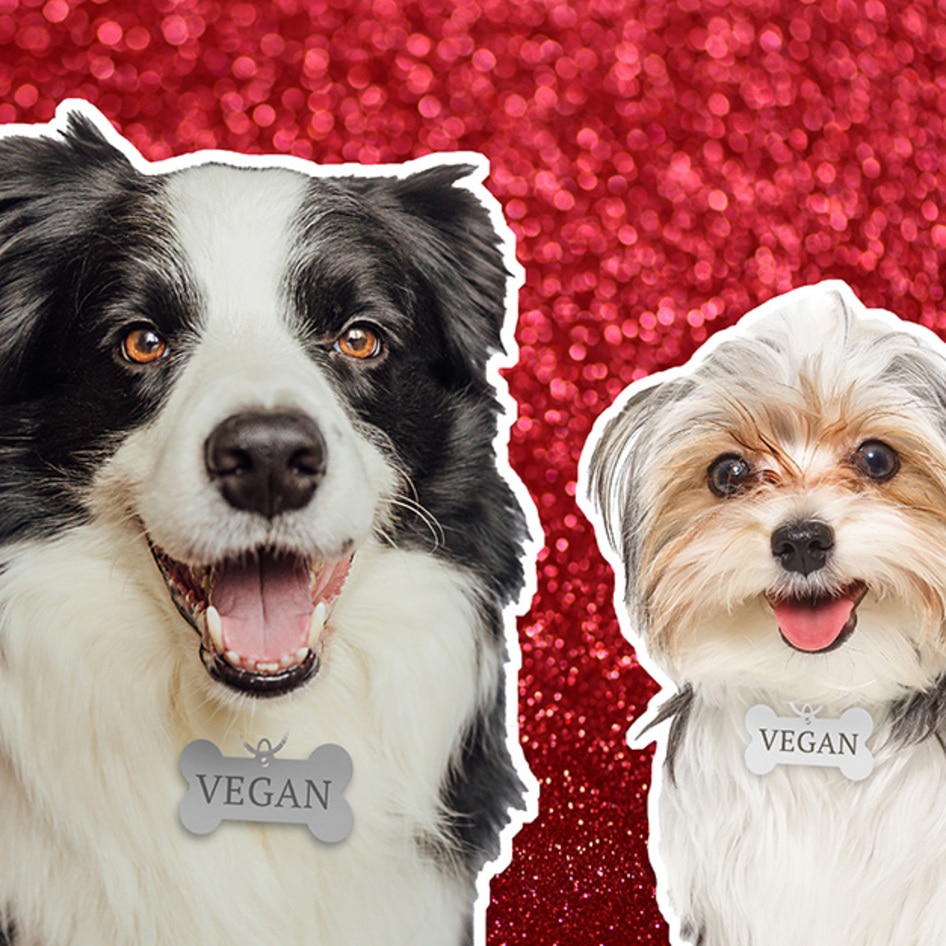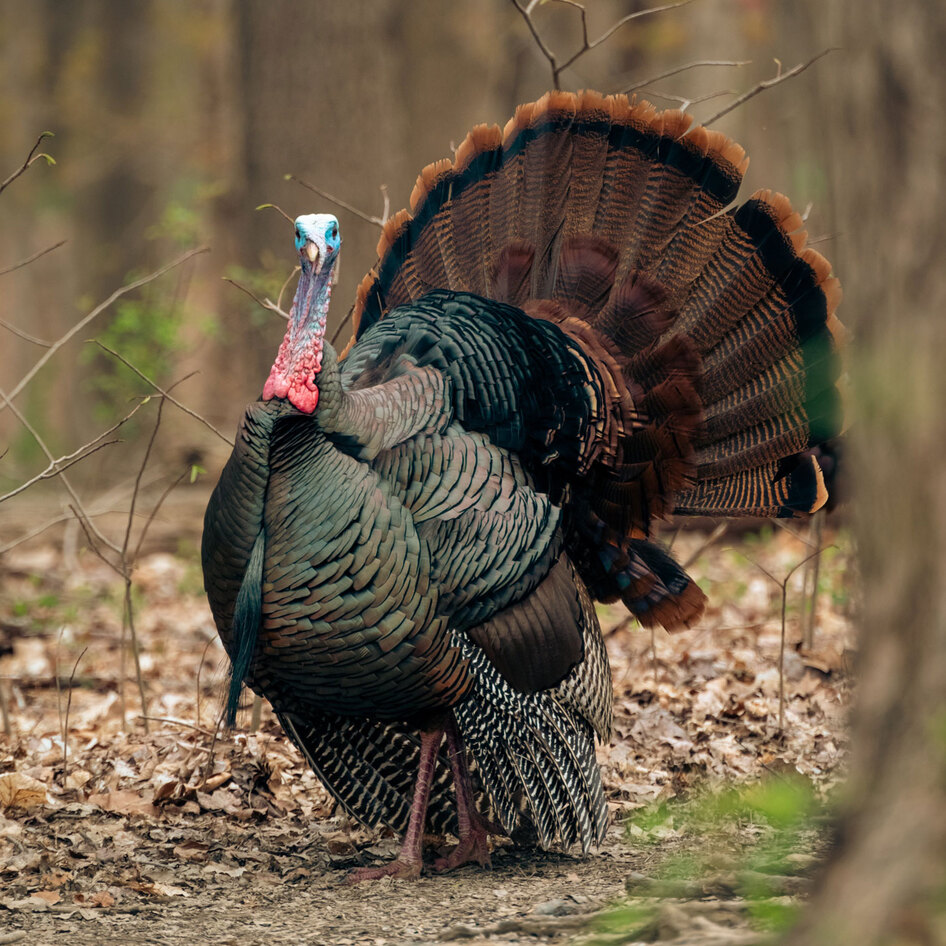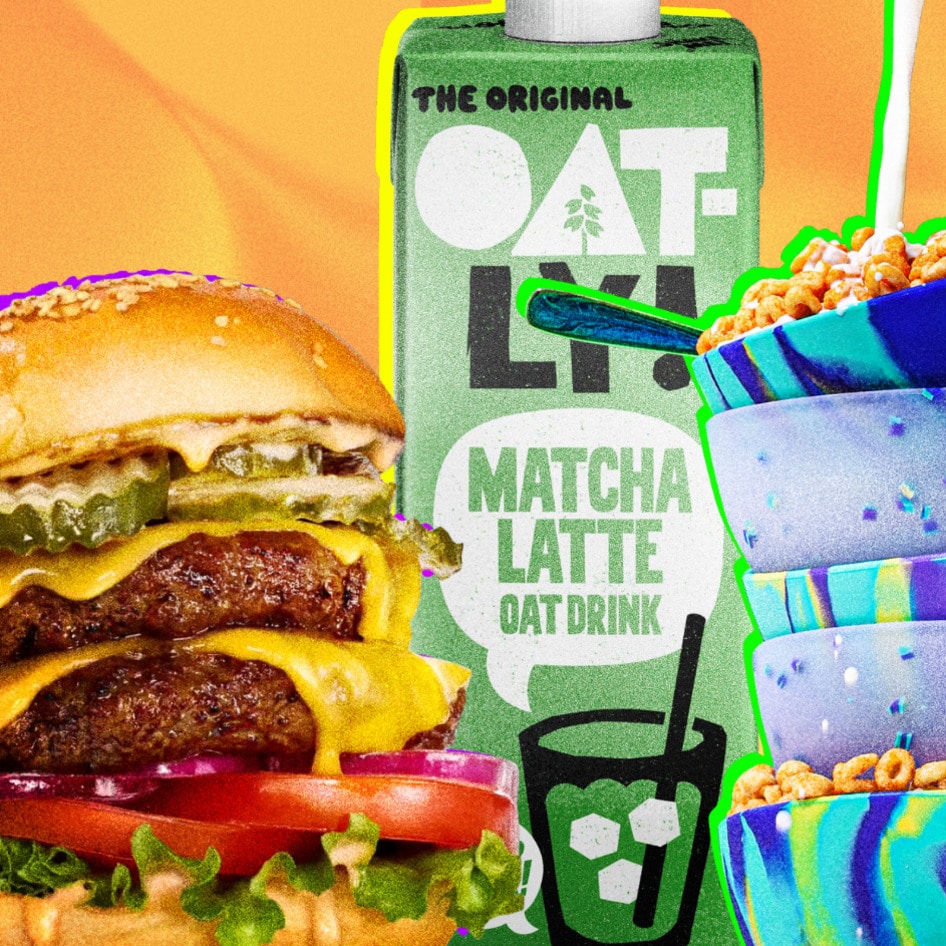It’s Time Your Dog Went Vegan
Increased energy levels and decreased allergies are just two reasons why your dog should go plant-based.
April 2, 2018
You have successfully—or are still in the process of—transitioned to a vegan diet, but, thanks to your dog, your kitchen still isn’t completely cruelty-free. If this scenario sounds familiar, perhaps it’s time you transitioned your canine to a plant-based diet. Wait … what’s that? Dogs can be vegan? Yes, and doing so can be beneficial to their health. The fact that you and your dog can live a cruelty-free life together is awesome, but you might have questions in regard to how to transition your carnivorous dog to a happy herbivore. But don’t worry because we have the answers.
Why vegan?
When people think about a dog’s diet, often they assume canines need to eat meat to survive. However, that isn’t the case. In fact, Lindsay Rubin, Director of Operations for V-dog, a vegan dog kibble brand, believes that, similar to human plant-based diets, a cruelty-free lifestyle is not only safe but healthy and balanced for dogs. Even better is the fact that a “vegan diet for dogs has the benefit of being totally cruelty-free, which means the slaughterhouse is removed from the equation entirely,” Rubin says. “Since we got started in 2005, we’ve seen through our own thousands of customers that dogs do not need meat to thrive.” And, also similar to humans, dogs who go vegan create a lower carbon pawprint on the environment once they eliminate their consumption of meat products. So, if there’s a food your dog loves, can thrive on, and that requires no other animals to be killed, why shouldn’t dog owners not choose this option? Finally, there are also risks (including recalls, allergies, carcinogens and environmental degradation) associated with feeding dogs meat.
Start slowly
When first transitioning your dog to a vegan diet, make sure the food he or she will eat is complete and balanced. To achieve this, transition them slowly during the course of approximately one week. “Most dogs love the taste immediately,” Rubin says, “and we actually hear pretty often that they choose the vegan kibbles over the meat-based ones.” Rubin recommends that if owners find that their dogs are hesitant about the new kibble, adding toppers such as peanut butter or warm water mixed with nutritional yeast can help make it more enticing.
It’s time you had a talk
Not everyone will understand why your dog is vegan. To help explain your reasoning, remind people that feeding your dog plant-based is not an example of cruelty to animals. In fact, show them how it’s the exact opposite. So, if you happen to run across a scenario similar to this one, be informed about the reasons why you chose to adopt a vegan diet for your dog. You can always begin by explaining how the act of locking up chickens, cows, pigs, and other animals is inhumane, or remind these people that allergy-related symptoms such as itchy skin and tummy troubles begin to fade in vegan dogs. In addition, transitioning a dog to a plant-based diet also will help increase a canine’s energy levels. Maintaining weight is also another benefit for vegan dogs. “Dogs with digestive issues typically see symptoms clear up after making the switch, as well as dogs with arthritis and joint pain,” Rubin says.
Ana Sofia Rodriguez is a vegan teen journalist who likes to write about fashion, culture, and anything else her mind can come up with.
JUMP TO ... Latest News | Recipes | Guides | Health | Subscribe







